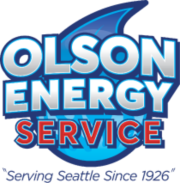-
Should You Switch to a Ductless Mini-Split?
If you’re looking for a smart and cost-effective alternative to having a central HVAC system in your Seattle home, you might want to consider the potential of a ductless mini-split system . A mini-split system is a type of HVAC system that works without the ductwork that central systems require to function. Instead, a mini-split system uses an outdoor unit and an indoor unit—connected by wires through a small hole in the wall—in tandem to heat and cool one or more rooms inside your home. Mini-split systems are easy to add to homes that you’ve just moved into, and they’re a terrific way to upgrade your current house as well. If you don’t want to install ductwork, or if your home is small, a mini-split system may be a better option for you than a new central HVAC system. Mini-split systems are one of the most efficient climate control options available, and they are simple and convenient to operate.
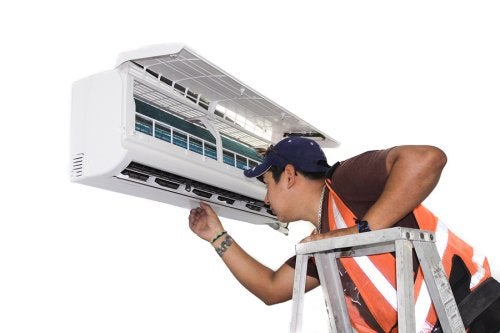
-
FAQs and Answers About Germicidal UV Lamps
If you’re concerned about the quality of the air inside your Seattle home, talk to an HVAC professional about germicidal UV lamps. These lamps are designed to eradicate many of the contaminants that take up residence inside your air conditioning vents , allowing you to breathe cleaner and healthier air at home. You may be wondering, however, just how effective these UV lamps really are. Here are some of the most commonly asked questions about germicidal UV lamps—and the answers.
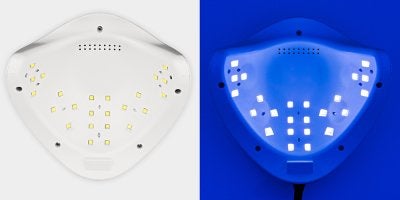
How do UV lamps work? UV lamps emit ultraviolet light, which damages the DNA inside organic pollutants such as bacteria, viruses, and mold spores. When they are aimed at a certain area, UV lamps can kill as much as 99.9% of the organic contaminants in that area.
Do UV lamps work on all pollutants? UV lamps will not eliminate dust, pollen, and other non-organic pollutants. To keep your air conditioning vents clean, you should still be sure to invest in routine cleaning and maintenance from an HVAC professional.
Will I notice my UV lamps at work? The answer is most likely no. UV lamps are silent, and they emit no odor. You probably won’t even notice your lamps at work. Be careful, however, never to look directly at a UV lamp—ultraviolet light is extremely dangerous to your eyesight.
Do UV lamps require any maintenance? You can have your UV lamps checked during your routine HVAC inspections to ensure that they’re working properly. HVAC professionals generally recommend that you replace the bulbs on an annual basis.
Who can benefit from using UV lamps? Clean air is important for everybody, but it may be most important for young children, the elderly, and people who have compromised immune systems. Minimizing exposure to bacteria, viruses, and other hazardous contaminants can make a significant difference in the lives of people who are more vulnerable to illness.
-
Tankless Water Heaters to Consider for Your Home
Tankless water heating has surged in popularity in recent years as homeowners across the globe seek energy-efficient and space-saving solutions for their households. With a broad range of options available, you may be unsure which tankless water heater is best. Follow this guide to help you understand the fundamentals, weigh the pros and cons, and consider the types of tankless water heaters for your home.
How Do Tankless Water Heaters Work?
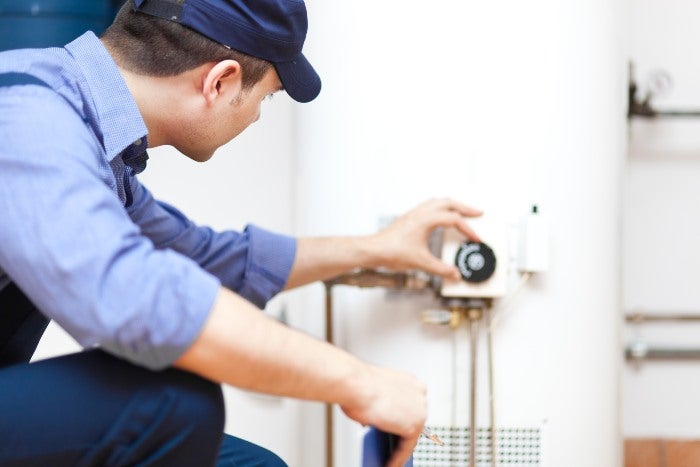
Unlike conventional storage tanks that maintain a large volume of hot water, tankless water heaters generate hot water on demand. They use high-powered gas burners or electric elements to rapidly heat water as it flows through the unit, delivering freshly heated water directly to your faucet without storing it in a tank. This on-demand functionality is highly efficient, space-saving, and eco-friendly.
Pros and Cons of Tankless Water Heaters
Before you decide to switch to a tankless water heater, carefully weigh the pros and cons of this technology.
Pros
- Efficiency and savings: Tankless water heaters only operate when needed, making them highly energy efficient. In fact, they reduce energy consumption by an average of 24 to 34 percent, leading to significant utility savings.
- Longevity: Tankless water heaters are designed for durability, with a lifespan of up to 20 years—around double that of traditional tank models. This longer operational life adds to your long-term savings.
- Small installation footprint: Unlike bulky tank water heaters, tankless units are compact and can be wall-mounted indoors or outdoors, providing more installation flexibility. This frees up valuable space in your home, making tankless units particularly advantageous for smaller residences.
- Continuous hot water supply: Because tankless units provide hot water on demand, you never run out, even after extended usage. This ensures a constant supply of hot water for endless back-to-back showers.
Cons
- Higher initial costs: Tankless water heaters cost more to purchase and install than traditional models. The potential need to upgrade your electrical system or ventilation setup adds to the upfront costs. Even so, the ongoing energy savings and long lifespan of tankless water heaters can offset the higher upfront costs, making them a financially sound investment.
- Limited output: While they provide continuous hot water, tankless heaters struggle to keep up if multiple taps are in use simultaneously. This reduced flow rate could be problematic for large households or homes with high simultaneous hot water demand.
- Inconsistent temperatures: If you shut off the water or lower the flow rate to a trickle, the tankless unit turns itself off. This means when you restore the hot water flow, the temperature may drop before it becomes hot again. This inconvenient phenomenon, called a “cold-water sandwich,” may still be worth it to enjoy significantly more efficient water heating.
Types of Tankless Water Heaters
Even within the category of tankless water heaters, you have a few styles and fuel types to choose from:
- Whole-house tankless water heaters are robust enough to cater to the hot water needs of an entire household. They are installed in a central location, often where your old water heater was installed, and service every faucet and fixture in your home.
- Point-of-use tankless water heaters supply hot water to a single point, such as a bathroom or a kitchen sink. They are compact and easy to install within the cabinet or high on the wall. This can be a cost-effective solution for adding hot water functionality to specific parts of your house while eliminating the wait time for hot water.
- Electric tankless water heaters are easy to install because they don’t require ventilation. However, they may draw substantial power, calling for an electrical system upgrade in some cases. These units are generally well-suited for smaller homes or point-of-use applications.
- Natural gas tankless water heaters are more powerful than electric models, capable of supplying larger volumes of hot water. However, they require proper ventilation to ensure safe operation, which limits where they can be installed.
- Thermostatically controlled tankless water heaters are sophisticated models that use flow-based power modulation to maintain a more precise temperature despite changes in flow rate. This makes every shower more comfortable and helps prevent scalding at the tap, a significant benefit in homes with young children or older adult residents.
Tankless Water Heater Solutions in Seattle, WA
Olson Energy Service is a trusted name in HVAC, electrical, and plumbing services. We have been serving Seattle since 1926 as a family-owned and operated business. Our skilled and experienced technicians can help you select a tankless water heater and conduct a professional installation, ensuring your complete satisfaction for years to come. If you’re ready to go tankless, please call us today at 206.782.5522 or contact us online to request tankless water heater services in Seattle, WA.
-
Enjoy Better Indoor Air Quality with Duct Cleaning
Maintaining good indoor air quality is essential for your health, and keeping your air ducts clean is key to ensuring that the air inside your house stays clean. Your HVAC system’s ducts are traps for numerous pollutants, including dust, pollen, mold spores, and even bacteria and viruses. If you’re concerned about your indoor air quality, you might consider scheduling professional duct cleaning at your Seattle home. An HVAC expert can thoroughly clean out your air ducts, ensuring that the air circulating through your home will be clean and safe for you to breathe. This is especially important if you or anybody else in your household suffers from allergies. In addition to improving your home air quality, having your ducts cleaned can help to make your HVAC system run more efficiently, which in turn can help to reduce your energy expenses. To keep your air ducts as clean as possible, you may want to have them professionally cleaned every few years.
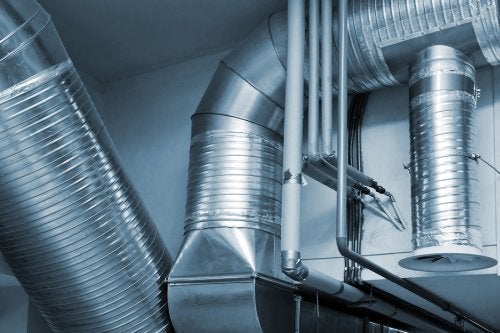
““
-
Spotlight on Duct Cleaning Services
Are you interested in increasing the quality of your home’s indoor air? If so, then consider services for air duct cleaning near Seattle. If you have central air, then your air conditioner and heater use ductwork to transport conditioned air throughout your home. Over time, buildup can occur within the ducts, or damage to their structure can allow for dirt and moisture to enter the system and lead to mold growth.
If your ducts have mold, dirt, and other debris in them, the particles and spores might be getting pushed into the rooms of your home every time that the system runs. This can lead to reduced indoor air quality caused by air pollutants and allergens.
Having an air conditioner and heater service come to clean out the ducts has the potential to increase your home’s indoor air quality. When the air in your home is cleaner, this can help keep your family healthier and reduce any symptoms that they are experiencing which are related to dust, allergen, or mold exposure. Additionally, cleaner ducts can mean better HVAC efficiency and a longer lifespan for the system.
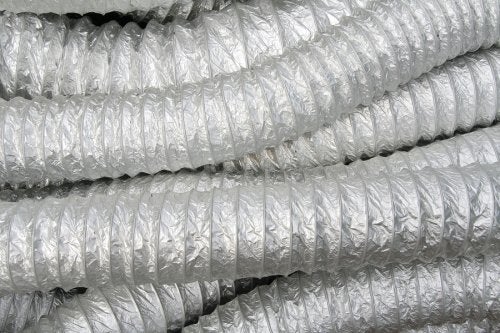
-
A Look at Tankless Water Heaters
You have to heat your water somehow, but some methods are much more efficient than others. Standard water heaters can be the right choice in certain situations, but you should also consider the advantages of a tankless water heater in Seattle . This type of heating appliance is convenient, energy-efficient, and inexpensive to operate. If you are in the market for a new water heater, feel free to read on and take a look at tankless water heaters.
If you live in a small space, care about energy-efficiency, and would like to save money on your bills, a tankless water heater may be the way to go. Since this type of water heater does not depend on a large reserve of water, it is much easier to fit one into living spaces of all sizes. The lack of tank also means there is no standby heat loss, which increases the overall efficiency of your water heater and your home. A tankless water heater will heat up your water on the spot, so there is little-to-no waste. This will reduce the cost of your energy bills, allowing you to save money and enjoy a more convenient and efficient household.

-
What is a Mini-Split Air Conditioner?
Are you considering your different options for air conditioning near Seattle? Mini-split systems offer heating and cooling solutions for areas that lack central air conditioners or heating systems.
Design
Mini-split air conditioners are ductless units that are used to cool a room or area of a building. These units are similar to central systems in that they have both an indoor and outdoor component. Mini-splits consist of an outdoor condenser/compressor and an indoor air-handling unit.
Uses
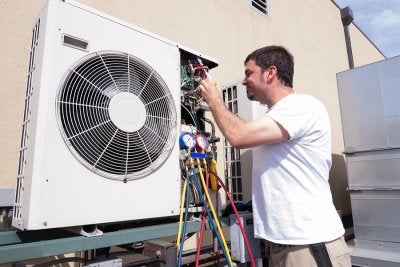 While there are numerous potential applications for these air conditioners, most often they are installed as retrofit add-ons for buildings that lack a ducted heating system. Examples can include homes that are heated using radiant panels, space heaters, or hot water heat. Mini-split air conditioners are also an excellent cooling solution for small apartments and room additions where it may not be feasible to install ductwork.
While there are numerous potential applications for these air conditioners, most often they are installed as retrofit add-ons for buildings that lack a ducted heating system. Examples can include homes that are heated using radiant panels, space heaters, or hot water heat. Mini-split air conditioners are also an excellent cooling solution for small apartments and room additions where it may not be feasible to install ductwork.Advantages
Due to their small size and the flexibility of their installation, mini-split air conditioners can be used to cool a single area or room. Additionally, many models can have up to 4 indoor handling units connected to a single outdoor condenser/compressor. Because each indoor unit has an individual thermostat, you can save money by cooling only the areas that you wish. Mini-splits also tend to be easier to install than other cooling systems. Most styles require only a 3-inch-wide hole through the wall to connect the indoor and outdoor components, and your indoor air-handling units can be as far as 50 feet from the outdoor apparatus. This allows home and business owners to install the outside section in an inconspicuous place, if necessary.
Disadvantages
The primary drawback that you will face if you opt for a mini-split air conditioner is the cost. These systems will require more investment per ton of cooling capacity when compared to central units, assuming there is already ductwork present, and can cost significantly more than a window cooling unit. Additionally, mini-splits can be more conspicuous than central air vents, but they are generally less obtrusive than window air conditioners.
““
RECENT POSTS
categories
- Uncategorized
- Air Conditioner
- Fireplace Inserts
- Fireplace Insert Installation
- Air Conditioning Installations
- Air Conditioning Units
- Air Conditioner Maintenance
- HVAC Professionals
- Heat Pump Installation
- Heating and Cooling
- HVAC Unit
- Heat Pumps
- Furnace
- Furnace Service
- Tankless Water Heaters
- Water Heaters
- Energy Efficiency
- HVAC Contractors
- Olson Energy Service
- Mini-Split Systems
- Ductless Air Conditioner
- Residential Services
- Seasonal Boiler Maintenance
- HVAC Maintainance
